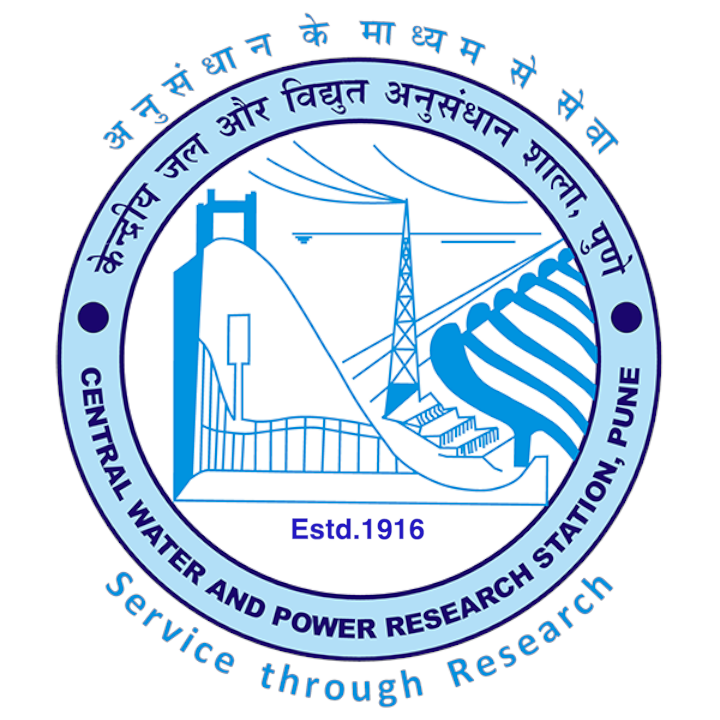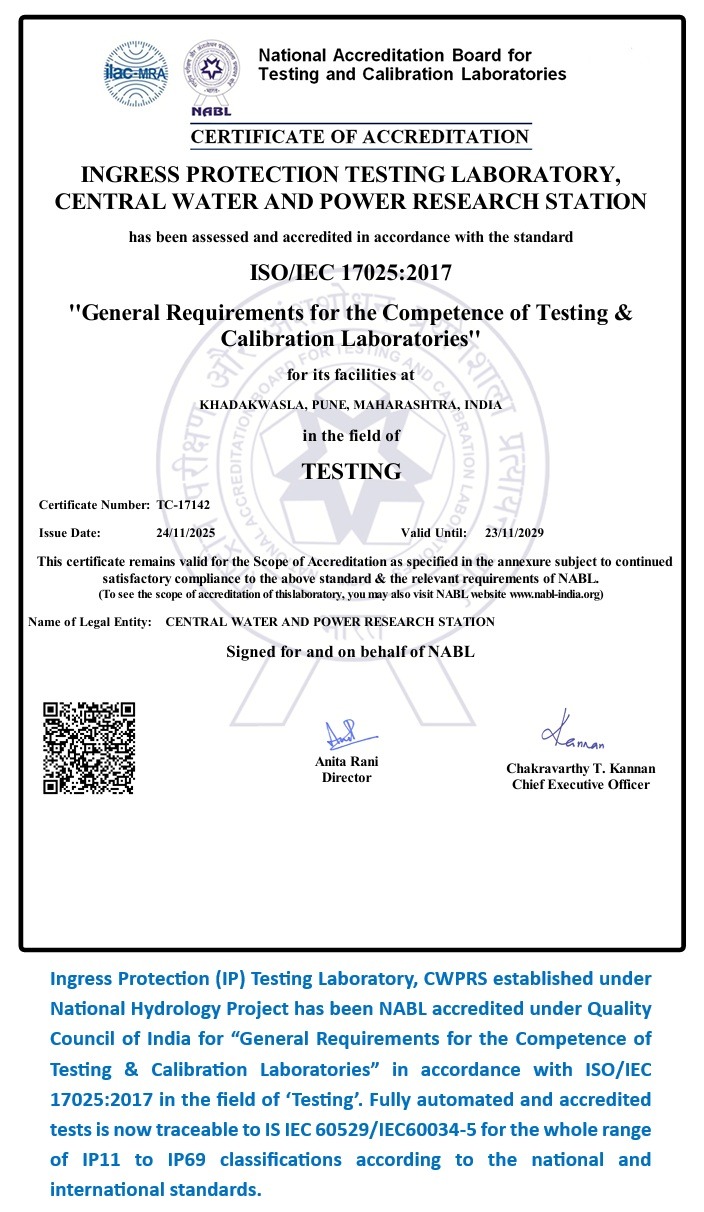About Us
In the beginning of the 20th century, the need for small scale laboratory investigations to study the twin problems of irrigation and drainage was recognised by the Government. The Central Water and Power Research Station (CWPRS), Pune, as it is known today, was established in 1916 by the then Bombay Presidency as a "Special Irrigation Cell" with a limited mandate to modify irrigation practice to meet agricultural requirements. Recognising its role in the systematic study of various phases of water flow, including floods, the institution was taken over by the Government of India in 1936. Due to considerable increase in its activities with development of water resources projects, the Research Station was shifted to Khadakwalsa, about 16 km southwest of Pune, with a larger campus in 1925.
With the dawn of independence and launching of planned development of the nation's water resources, CWPRS became the principal central agency to cater to the R&D needs of projects in the fields of water and energy resources development and water-borne transport. Today, CWPRS, a part of the Union Ministry of Jal Shakti, Department of Water Resources, River Development and Ganga Rejuvenation, is one of the foremost organisations in the world in the field of hydraulics and allied research. CWPRS provides specialised services through physical and mathematical model studies in river training and flood control, hydraulic structures, harbours, coastal protection, foundation engineering, construction materials, pumps and turbines, ship hydrodynamics, hydraulic design of bridges, environmental studies, earth sciences, and cooling water intakes.
The studies conducted by CWPRS are able to provide hydraulically sound and economically viable solutions to various problems associated with projects on water resources, energy and water-borne transport including coastal and harbour engineering. CWPRS also collaborates with other organisations like WAPCOS and educational and research institutions to complement its activities. Thanks to the Government of India's financial support, CWPRS has been able to keep pace with the rapid advancements in hydraulic research by way of updating its facilities and expertise. As the Regional Laboratory of ESCAP since 1971, CWPRS has offered its services to a number of projects in the neighbourhood countries as well as countries in Middle East and Africa.
© Copyright © 2024 - Content owned by Central Water and Power Research Station (CWPRS), Developed, hosted, and maintained by ADG Online Solutions Pvt. Ltd.










